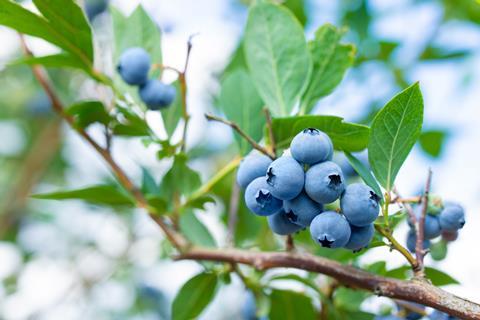As South African blueberry exports to traditional markets move into full gear, there are also efforts to increase access in the East

The South African berry industry, which has for so long depended on Europe and the UK, has been working behind the scenes to gain improved access to the East for some time.
While China and India have been on the radar, industry body Berries ZA says it is now also looking at access to Japan.
In the October-December period exporters are ramping up volumes as the largest production region in the country, the Western Cape, moves into its peak season.
“Our total target for shipments still stands at 23,000 tonnes, after the export crop had previously been adjusted downwards from 25,000 tonnes,” said Berries ZA chief executive Brent Walsh.
“We still have good volumes coming out of the north of the country, but volumes are now picking up significantly as growers in the South increase their harvesting activities.”
The market remained short, he noted, so there is very high demand for South African blueberries.
“This has resulted in continued pressure on access to airfreight, to service markets as efficiently as possible,” Walsh outlined. ”The short market situation is a function of the delay in Peru supply into our markets. There is no clear information yet as to when this situation to change.”
The success of the season would very much be determined by what is happening in the Cape region, he continued.
Over the longer term, though, success will very much be determined by access to new markets.
Berries ZA recently participated in Asia Fruit Logistica as part of the South African delegation.
“In terms of market access, we continue to make progress with our application into the Indian market,” said Walsh. ”We are waiting on feedback from India at this stage.”
The industry body is awaiting the completion of South Africa’s stonefruit application to gain access to China before the two countries will take on the blueberry access issue.
“Once the stonefruit application has been completed into China, we will be in a position to move to the process for our blueberries into China,” he commented.
“In the meanwhile, Berries ZA will also be participating in a trade mission to Japan in October to indicate our interest in market access and take the discussion and process further.”
As is the case everywhere, introducing new varieties is high on the agenda for South Africa’s berry industry.
Plant material management company TopFruit indicated that there were now several new varieties gaining momentum in South Africa and countries to the north.
Pieter Zietsman, berry manager at TopFruit, said the company was working with three breeding programmes, namely University of Georgia (UG) in the US, IQ Berries from Australia and the New Zealand Plant & Food Institute.
“In terms of UG the variety Maverick is the best performer and has already been in South Africa, as well as Namibia, Zimbabwe and Zambia,” said Zietsman. ”It eats well, has a good shelf-life with constant production and therefore is popular with growers.
“From IQ Berries we have MegaEarly, which is harvested as early as April in the north of South Africa and MegaCrisp which is drawing interest,” he added.
“These varieties have great rating qualities, are crunchy and can be stored for a considerable period. They are all open for all growers to plant without restrictions.”



